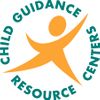1 in 54 children in the United States are diagnosed with Autism Spectrum Disorder. Typically, children are diagnosed when they are young. Usually, they are diagnosed after four years old, though children can be diagnosed as early as two years old. What are some of the early signs parents and caregivers should look out for? Today, we’re going to discuss some of the main things we look for. If you have a child that age and are seeing any of these signs, talk to your pediatrician or contact us. Children who are diagnosed young and get into services at an early age benefit far more than those who wait. It can be incredible to see the progress in those early year! Remember, autism looks different in every child because every child is unique. Not every child is going to have the same behavior, and some may show behaviors but not have autism. This is not a diagnostic tool, but general education.
For babies/toddlers, some of the early signs might be:
- If they don’t make eye contact with you
- If they aren’t expressing emotion (I.e. not smiling at you when smile at them)
- If they aren’t responding to their name
- If they aren’t babbling and or beginning to the few words at age-appropriate stages
The following are some signs that you can see in a child at any age:
- Restricted interests/behaviors:
- A need for sameness and routines, which could mean that they notably struggle when their routine is changed.
- Difficulty with transitions (moving from snack to playing, or playing to dinner)
- Preoccupation with a narrow or specific topic, often involving numbers or symbols
- Inflexibility & rigidity
- Lack of social skills:
- If in a daycare or kindergarten where they are with other kids, instead of playing cars with other kids, they tend to play alone
- Poor or limited eye contact
- Limited play and social interactions
- Difficulty understanding social cues
- Trouble understanding another person’s feelings, such as pain or sorrow
- Sensory needs:
- Sensory stimuli can result in an inability to filter information. Children with autism often have sensory sensitivities. This means a child has a difficult time receiving and responding to information from their senses. They have an aversion to anything that triggers their senses, such as light, sound, touch, taste, or smell.
- Example: difficulty concentrating in class due to fluorescent light sensitivity
- Over-reactive or under-reactive to sounds, smells, textures, etc.
- Example: sensitivity to loud sirens, tag in back of t-shirt, smells of certain foods and/ or texture
- Pain threshold may be high
- Resistance to being touched
- Self stimulatory behaviors: rocking, hand flapping, pacing, spinning objects etc.
- Impairments in communication:
- Difficulty initiating and/or maintaining conversations
- Repetitive use of language such as echolalia and scripting.
- Delayed language development
- Differences in volume, pitch, tone
- Lack of showing emotion in their tone
- Tantrums and other non-adaptive behaviors used to communicate a desire to escape from demands or to obtain social attention and tangible items
These are some things to pay attention to and talk with your pediatrician about – and remember, just because you see one or two of these does not mean anything! It just means you may want to get an assessment and get the support your child needs. Child Guidance offers an Early Education CREATE program specifically designed for children on the Autism Spectrum. This social skills morning program teaches interactive play skills with others, communication skills, regulating their emotions and other general social skills for 3-6-year-olds. The program is Monday-Thursdays from 9am-12pm.
If you are interesting in learning more about this program or looking for an application, please contact us. If you are wondering if your child needs an assessment, you can contact us too. We’re here to help you find the solutions you and your family need.
About the author: Briana grew up in Delaware County and graduated from Temple University with a degree in Social Work. She fell in love with the autism community when she worked in the CREATE program as a Mental health Worker in 2016. She’s now the Clinical Quality Manager for the program. She is currently pursuing her Master’s in Special Education at Cabrini. She lives in South Philadelphia and loves spending time with her family, friends, nephew and new niece! When we aren’t in a pandemic, you can find her at a concert every other weekend or cheering on the Flyers or Phillies.

